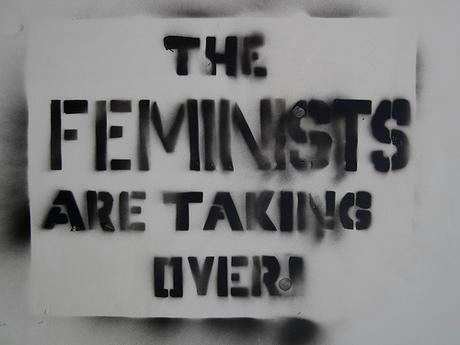
Feminism is going viral
A friend of mine recently shared #SpreadFeminism, a challenge campaign encouraging fellow feminists to post a video, picture, poem, or anything else related to feminism on their Facebook page for five days and invite three friends to do the same. then continue the trend.
Initially, I was excited. What a simple, powerful idea. At the same time, I couldn’t shake my doubts. I love the idea of spreading feminism, but what notions of feminism will be spread? What if this campaign affirms the struggle but erases its underlying complexities? What if it does more harm than good?
Here’s why I’m worried:
Feminism is beautiful because it is complex. I love the idea that there are so many ways to understand and practice feminism and that it touches all of humanity. It is a struggle for strength, a fair distribution of power, and healing.
As a Brazilian, however, I find myself critiquing the current feminist scenario in the US. The media here commodifies feminism to an alarming degree. This impacts the whole world, because everyone follows the type of media the US launches. But even with all the North American media influences in Latin America, I hadn’t experienced such a vivid consumerist feminism until I began college here.
The mass media and corporations have the potential to pacify radical ideas by turning every struggle into a commodity. Consumer culture has appropriated the collective feminist struggle and made it a matter of individual responsibility, rather than a collective ideological change.
Take Dove’s #SpeakBeautiful campaign, for example. The campaign implies that the problem with patriarchy and society’s harmed dynamics, such as sexist or hurtful language, has an easy individual fix: If you simply “Speak Beautiful” you’ll encourage women to love each other and themselves (- and don’t forget to buy something from Dove).
The problem is not with how women speak, though, but with the structural (institutional and societal) conditions that divide, ignore and negate us when we speak. Certainly it’s very important to start the change from within, from our ways of thinking, speaking and being. But consumer culture, especially in the U.S., has shifted the focus from personal and collective growth to individual and collective materialism.
I worried that #SpreadFeminism and campaigns like it will be of the individualistic “I am powerful and beautiful and that’s enough” variety. I know this message is important, but it comes at the cost of affirming collective struggle against oppression. Feminism for me is as much about radical and structural change as it is about loving ourselves; as much about combating ideological and structural oppression as it is about healing ourselves.
But I’m conflicted. Am I undermining my belief in feminism’s complexity with my critique? Should we embrace this challenge as an attempt to enhance dialog and awareness of what feminism is, was, and can be? I think so. The idea of #SpreadFeminism is perhaps flawed, but I also find it powerful and creative in many ways:
- The challenge expands the visibility of feminism. I’ve often found myself talking about feminism with informed friends, in college classes, or in activists groups I’m a part of. I rarely get the chance to talk about feminism with friends or family who don’t know much about it. This challenge on Facebook opens a space to convey ideas to a wider audience. With this challenge I find a way to talk about my involvement in feminism with my Mom or old school friends and engage in dialog with them through my Facebook posts.
- #SpreadFeminism creates a virtual space for dynamic sharing and dialog. There is so much about feminism out there that we don’t know, from personal stories to pieces of art. Why not share these with each other while making a statement about the importance of feminism? We connect and also raise awareness to those who have not yet seen the importance and variety of the feminist struggle.
- The challenge creates connection through collective memory. Art and feminism go so well together, and there’s nothing like encouraging feminists to connect their ideas through the virtual world. Posts can stay visible for us and for others, not like the fleeting moments of an individual conversation. The connections established by sharing the challenge become a visible sign of the collective struggle.
I challenge all of us to #ShareFeminism with the ones who share the struggle with us, and with the ones who don’t—yet. The more we make the struggle visible, the more we heal, the more we connect, and the more chances we have to enact change. I encourage us to expand our notions of feminism beyond materialism and consumerism and share what touches us deeply in our hearts.
Start your challenge! Post something and invite three different friends to join the challenge for five days. Let’s make feminism and all its complexities go viral!

